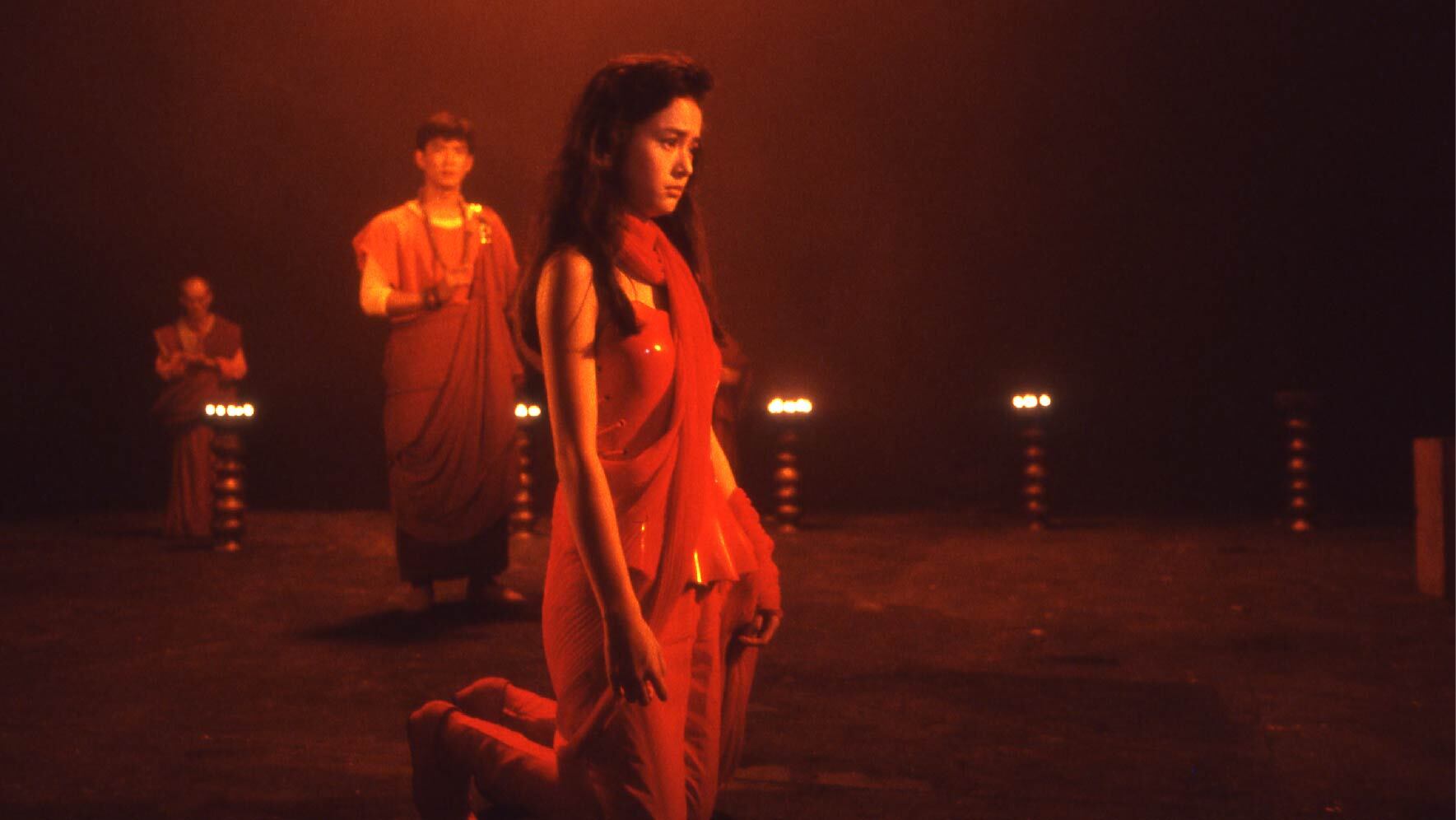
Saga of the Phoenix
Orig Story: Makoto Ogino
Scrs: Chan Sau-ling, Wong Tsui-wah, Leung Yiu-ming
Prod Co: Golden Harvest
Cast: Yuen Biao, Gloria Yip, Loletta Lee, Shintaro Katsu, Hiroshi Abe
1990 | Colour | DCP | Cantonese | Chi & Eng Subtitles | 93min
At the behest of Chua Lam, Golden Harvest saw the immense popularity of Japanese manga throughout Asia, and worked with Fuji Television Network to adapt Makoto Ogino's award-winning comic book series into a film of the same English title, Peacock King (1989). The then-15-year-old Gloria Yip was cast as the naive and playful Ashura. The film was a runaway success in Japan. The following year, Golden Harvest decided to follow up with a sequel Saga of the Phoenix, with the plot focusing on Gloria Yip's character. The cast was impressive, including Japanese film star Shintaro Katsu, well-known for playing Zatoichi the Blind Swordsman, as well as the then novice actor Hiroshi Abe. The plot centers around Hell Virgin Ashura, who has escaped from the Realm of Demons. She receives permission from Master Chi Hung (Shintaro Katsu) to play in the human realm for seven days. Peacock (Yuen Biao) and Lucky Fruit (Hiroshi Abe) are sent to protect her. However, the aggressive and ambitious Demon Princess (Ngai Suet), in a bid to rule over the Realm of Demons, tries to increase her own powers by stealing Ashura's spiritual aura. The exterior locations of the film were shot in Nepal, paired with even more major-scale visual special effects than its previous instalment. Amidst the original comic book's mystical and Buddhist-heavy atmosphere, the film also featured Hong Kong-style martial arts sequences. The plot is rich and tightly-knit, a prime example of the ambitions and charm of Hong Kong cinema in its golden era.
© 2010 Fortune Star Media Limited All Rights Reserved
| Date | Time | Venue |
|---|---|---|
| 3/6/2023 (Sat) # | 11:00am | Cinema, Hong Kong Film Archive |
# Post-screening talk with Eric Tsang Siu-wang
The contents of the programme do not represent the views of the presenter. The presenter reserves the right to change the programme should unavoidable circumstances make it necessary.

